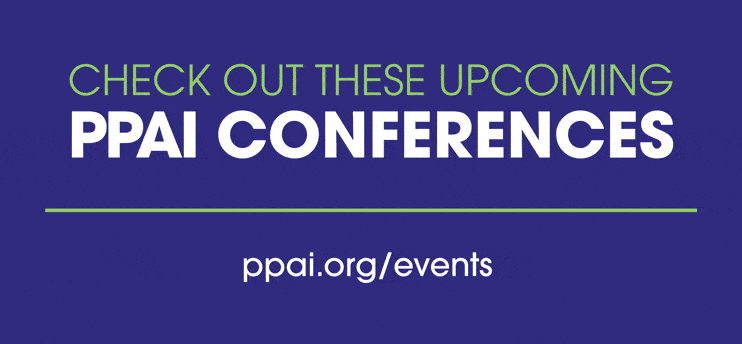To grow your business and be profitable, you simply can’t be everything to everyone. As promotional products industry veteran Cliff Quicksell, MAS+, points out, “One of the key markers in growing a successful, profitable business is knowing who you are, what you do, where your expertise lies and who your customers are; they are the most profitable ones.”
This week, Promotional Consultant Today is featuring encore insights from a few of the most memorable presenters at the recent PPAI Expo 2018, including Quicksell.
Yesterday, PCT shared Quicksell’s methodology for identifying your most profitable market segments. Today, we share the second part of his article, “Segment Your Key Markets and Create a Better Pathway to Success,” with key questions to ask yourself when identifying the markets where you should put your time and resources.
Take the time to review this in detail and ask yourself some thought-provoking questions:
In which of these markets do I have first-hand experience? Having an understanding of the clients’ business is a key factor in developing sound business relationships.
Which give me the greatest profitability? Being profitable is the No. 1 thing; it’s what you put in your pocket that matters more than how much you sell. I know a lot of people who sell over a million dollars a year at 20-percent gross profit and others that sell $600,000 at 50-percent gross profit. Do the math.
Which segments are the most fun to work with? That may seem strange, but your career doesn’t need to be depressing to be successful. Look for segments that you enjoy.
Which deliver the most loyal clients? Reflect on this one because you should be surrounding yourself with people who appreciate your value, not ones that are beating you up for free stuff and then wanting you to match prices on concepts you presented that they then found less expensive elsewhere. Develop a profile of the type of client you want to work with, then go find them.
Where do I honestly see the greatest growth potential? This is where the marketing plan comes in so handy. If you’ve done your plan correctly and have done ample research then you will know the depth of the market in your immediate geographical area. Don’t stop looking there because once you become known as the expert in that particular vertical market your name, services and the solutions you have or can develop could indeed go viral.
How many markets should I have? This is determined by the number of staff members you have and the amount of time, of course. You should have a minimum of three to four markets if you are a one-person company; that can expand for larger firms. In larger companies, expanding your markets is a great way to develop salespeople and keep your organization growing. Note that once you have your company’s client list segmented you may find you have 20 different categories or segments; develop only three to four initially—you want to be the expert in each area, not considered a generalist. That said, I am not suggesting you forget about the other clients on your list, but really begin serious and strategic marketing efforts into the three to four categories you’ve selected.
Review regularly. As these markets expand, you may want to further segment. The reason is that your marketing efforts must be in line with their specific needs. Some marketing can indeed be general but the more specific you direct your marketing efforts, the greater the likelihood of success. This works the same when you are helping your clients achieve their respective marketing and sales goals.
Every month for the first six months, review your vertical market strategy. You may indeed find that certain markets are drying up or that others may be emerging. Resist the urge to jump ship and develop additional markets on a whim; be strategic, and think strategically. After the first six months, review them quarterly. Make it a habit and you’ll be amazed how this will help you run your business more efficiently.
Develop your markets—become the expert. Make your efforts speak to these markets. Take a moment to think about this in your life: you want the best dentist, doctor, lawyer, auto mechanic, friends, nail technician or hairdresser. The same holds true for your clients. In order for you become more entrenched in these specific market segments, you need to keep your ears to the ground, eyes on the market and become fully engaged. This is accomplished by attending their shows, reading their blogs and articles in specific industry publications, and connecting with key influencers on Facebook, LinkedIn and other social media sites. Having this ongoing knowledge base improvement will give you amazing discussion topics when in front of these clients. Once again, this strategy expands the realization to prospects and clients that you are the most knowledgeable expert in their specific field.
I Know This Works …
I don’t write these words just to fill pages. This strategy has worked for me and many others that I consult with in the industry. But the next step is the hardest: making the commitment to do something and only if you feel this approach will work for you. I will assure you that if you implement this strategy, your client conversations will improve. You’ll even be perceived differently by your clients, and potentially, you will own categories where you can be perceived as the expert. My friends, experts get paid more than generalists—become an expert.
Note: Quicksell offers a 15-minute free consult to the first 10 people who email him at cliff@quicksellspeaks.com. You can also connect with him on social media and sign up for his weekly blog, 30 Seconds to Greatness, by visiting http://www.quicksellspeaks.com/.
Source: Cliff Quicksell, Jr., MAS+, is president & CEO of Cliff Quicksell & Associates, and the exclusive sales and marketing consultant and acting director of marketing for iPROMOTEu, Inc. He has been involved in the promotional products and sportswear industries for the past 33 years. He has achieved the MAS+ professional designation, and he has been actively involved in PPAI as a speaker and facilitator at PPAI shows and events for more than 15 years.


